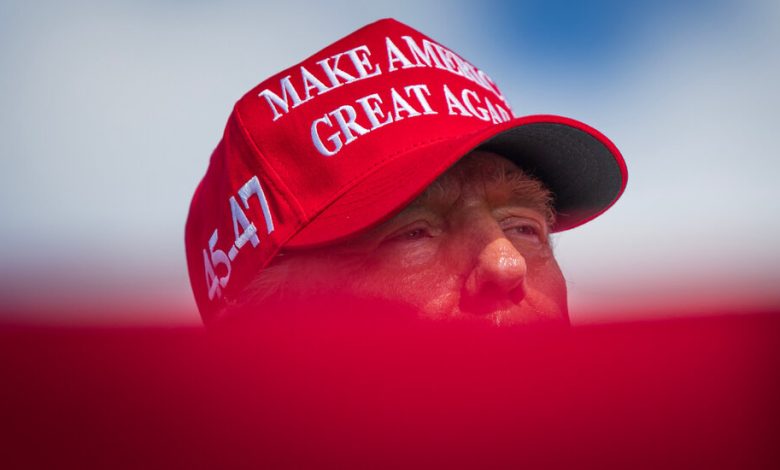What Drives Trump Also Limits Him

Donald Trump didn’t sound any different, not really, during the debate than the way everyone knows him to be. He didn’t sound any different on Friday afternoon, either, at his post-debate rally in Chesapeake, Va. The world around him convulses and Mr. Trump pretty much stays the same.
There are different ways a candidate could play an event like that, hours after a major campaign moment — like the catastrophic debate — goes badly for his opponent. In a parallel universe, with a different kind of nominee, the candidate might use the rally to frame the next few years as a new era, opening up a conciliatory front to the independent or even Democratic-leaning voter, to talk about cohesive policy visions and the voter’s life.
With Mr. Trump specifically, the way people talk about him like he’s the sly fox, there’s a version of this post-debate rally where he really deviated from the norm — went shorter, did something slightly different, to shape how people viewed last week.
In politics, there’s a rule about not getting in the way of an opponent’s crisis, but in that parallel version of Friday’s rally, perhaps Mr. Trump would pursue some news-making surprise to press the advantage. Or maybe he’d give into the base emotion people expect from him and try to knife Joe Biden further with an expansive commentary on the night before — Mr. Trump the destroyer onstage before a jubilant crowd, running through this and that moment from the debate, reliving it.
That’s not, really, what it was like. Once he got on the stage near Virginia Beach, it was more his normal, discursive, expansive routine. Mr. Trump is inescapably himself.
The campaign, and the promise of the second presidency, inescapably begins with Mr. Trump’s voice. It’s probably why he’s still rolling on, dominating opponents and politics itself, and it’s certainly why through virtually any eventuality, the polling numbers of this race barely move: what powers him also limits him. He keeps everything close.